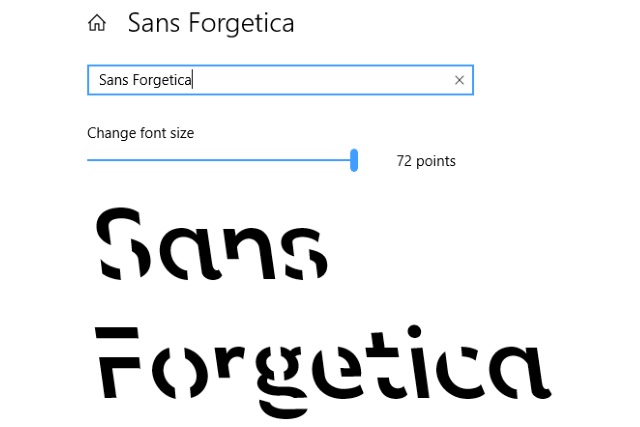
Chrome 70 introduces more control over security features
Google has released Chrome 70.0 for Windows, Mac and Linux, along with Chrome for iOS 70.0. Chrome for Android 70.0 is due imminently.
The desktop version of the browser gains several new security related features to build on the major facelift unveiled in Chrome 69 to mark its tenth anniversary.

Bye bye, TLS 1.0 and 1.1: Apple, Microsoft, Mozilla and Google all wave adieu to old security protocol
As part of a coordinated movement between four of the biggest names in tech, the old TLS 1.0 and 1.1 security protocols are to be killed off in Safari, Edge, Internet Explorer, Firefox and Chrome in 2020.
Apple, Microsoft, Mozilla and Google have come together to purge the internet of these old and buggy protocols, noting that most people have now moved to TLS 1.2, if not TLS 1.3. Although 94 percent of sites already support version 1.2, a tampering off period over the next 18 months will give everyone a chance to catch up.

Firefox 64 will support Action Center notifications in Windows 10
Following the footsteps of Microsoft Edge and Chrome, Firefox is -- at long last -- going to offer support for the delivery of notifications through Windows 10's Action Center.
The move will please many Firefox users as this is a highly-requested feature, and it brings Mozilla's web browser in line with its rivals. While there is no release date for the finished version of Firefox 64, Action Center notification support has already made its way into the nightly builds.

Sans Forgetica: the font that could help you remember
Researchers from Australia's RMIT University have created a font which they say could help you to retain more data.
Sans Forgetica is the result of work involving typographic design specialists and psychologists, and it has been designed specifically to make it easier to remember written information. The font has purposefully been made slightly difficult to read, using a reverse slant and gaps in letters to exploit the "desirable difficulty" as a memory aid.
Google is trying to make Chrome extensions safer with new Chrome Web Store review process and permission controls
Extensions are a great way to increase the capabilities of your web browser, but they can also be the source of problems. Malicious extensions can be a serious headache, and this is something that Chrome users know more than most. Now Google is looking to improve security.
The company has already promised that with Chrome 70 it is going to give users more privacy controls, and today it announced that this version of the browser will also introduce permission controls extensions. On top of this Google is introducing a new review process for extensions submitted to the Chrome Web Store, as well as placing a ban on extensions with obfuscated code.

Vivaldi 2.0 adds new Sync feature, resizable tiled tabs and floating web panels
Customizable web browser Vivaldi 2.0 has been released for Windows, Mac and Linux. This challenger web browser, which has boasted over 1,500 improvements since its initial launch in 2016, unveils yet more major changes.
Chief among these is the long-awaited debut of browser sync to bring feature parity with other major browsers. Other tweaks have been made to existing features while the underlying browser engine has been updated to Chromium 69.

After complaints, Google is going to give users more privacy controls in Chrome 70
With the release of Chrome 70, Google is set to address two recent privacy concerns with its browser. Users have been unhappy with Chrome 69 forcibly signing them into the browser when they sign into a Google website, and there have also been concerns about the handling of cookies.
Due for release in the middle of October, the next version of the web browser will enable users to disable the controversial sign-in feature, as well as changing the way Chrome handles the clearing of auth cookies.

Browser Reaper: exploit causes Firefox to crash
A security researcher has developed an attack that exploits a Firefox bug, making it possible to crash the web browser.
Sabri Haddouche used his Browser Reaper website to share a live test version of the exploit -- the site is also home to exploits for Chrome and Safari. The Firefox attack uses JavaScript to crash or freeze the browser, with the effect of the exploit depending on whether the browser is running on Linux, Windows or macOS.

Security: Tor 0-day revealed on Twitter by vulnerability vendor
It's just two weeks since a Windows 0-day was revealed on Twitter, and now the same thing has happened for the Tor browser. Zerodium -- self-described as "the premium exploit acquisition program" -- exposed a backdoor vulnerability in Tor that makes it possible to bypass security protections.
The vulnerability affects Tor 7, and the vendor says that the problem has been addressed in the recently-released Tor 8. A proof-of-concept for the security has also been published.

Tor for Android brings secure, anonymous internet browsing to your mobile phone
It seems like mere moments since an updated version of Tor for the desktop was released, and now there's great news for owners of Android smartphones. The Tor Project has released an Android version of the Tor browser, and it's available to download either directly from its website, or from Google Play.
Currently in alpha -- so expect there to be a few issues -- this is the only mobile Tor browser that's supported by the Tor Project, and the developers promise that it will block trackers, protect against surveillance and ensure privacy.

How get rid of Chrome's stupid new rounded look
The celebrate the 10 anniversary of Chrome, Google pushed out version 69 of the browser complete with a new look. Many people find change hard to accept, and for some Chrome users, the rounded look that Google has introduced feels like a step back in time.
If you prefer the way Chrome used to look, you'll be pleased to hear that you're not going to be forced to stick with the redesign. There's a hidden setting that you can tweak to get things back to how they used to be.

Firefox Quantum 62 tweaks home page, allows deletion of personal data when disconnecting Sync
Mozilla has released Firefox Quantum 62.0 for desktop, along with Firefox for Android 62.0. Version 62 ships with several minor new features, the most visible of which is support for up to four rows of personal customizations -- top sites, Pocket stories and highlights -- on the new Firefox Home menu.
Android users gain the most notable changes in Firefox 62: scrolling performance is improved, and there’s the promise of faster loading times over Wi-Fi by loading from the network cache if it’s quicker than the disk cache. Users also gain more control over notifications with the addition of a 'Product and feature tips' option.

Mozilla to boost Firefox privacy by automatically blocking all tracking
Mozilla has announced some of its plans for Firefox, and there's a strong focus on privacy. At an as-yet unspecified point in the "near future" the browser will block all tracking by default, although it is being trialed this month.
In addition to this -- which is a change from the current Do Not Track option -- Firefox will include a new set of options which Mozilla says will give users greater control over the information they share with websites. As well as helping to improve privacy, Mozilla is also hoping to improve the performance of its web browser with a new set of controls that it says will empower users and give them a voice.

Pale Moon 28 unveils major under-the-hood changes and improvements
Moonchild Productions has unveiled Pale Moon 28.0 for Windows and Linux, the first major update of its Firefox-based browser since November 2016. Also available in 64-bit form, Pale Moon 28.0 features numerous changes and updates.
The new build unveils the fourth iteration of its own browser rendering engine, Goanna, which was first adopted back in 2016. There are also major updates to its JavaScript engine, media backend as well as newly introduced support for the WebGL2 standard.

How to enable Chrome's secret Emoji Context Menu to make it easier to type emoji
The likes of Duolingo have made it easier than ever to learn French, Spanish, Polish, Hebrew or whatever other tongue tickles your fancy, but the language of the internet is -- arguably -- emoji. On your mobile phone, these handy little characters are easy to type, but less so on your computer.
To make things a little easier, Google Chrome now has a hidden Emoji Context Menu that you can enable. Once activated, this menu can be used to access an emoji picker to add emoji to text fields. Here's how to enable it.
